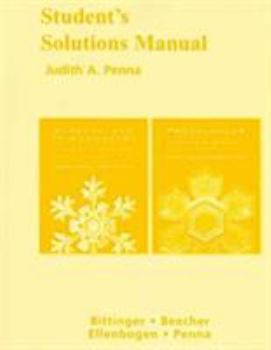Student's Solutions Manual for Algebra and Trigonometry/ Precalculus: Graphs and Models
Select Format
Select Condition 
Book Overview
- By Judith A. Penna - Contains completely worked-out solutions with step-by-step annotations for all the odd-numbered exercises in the exercise sets, with the exception of the Collaborative Discussion and Writing exercises, and for all the odd-numbered review exercises and all chapter test exercises This description may be from another edition of this product.
Format:Hardcover
Language:English
ISBN:0802835791
ISBN13:9780802835796
Release Date:January 1983
Publisher:William B. Eerdmans Publishing Company
Length:199 Pages
Weight:1.05 lbs.
Customer Reviews
1 customer rating | 1 review
There are currently no reviews. Be the first to review this work.




















